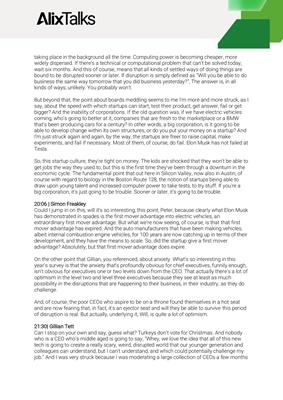
18:53 | William Lewis
Ok, sorry Guy, let me leap in there for one second, because Wendy, just to build on that. So,
Wendy you're speaking to us kindly from Hong Kong. Can you just broaden out our
understanding of how countries and governments are responding to this? Can you give us the
Asian perspective and obviously, in particular, China? And obviously China looming large in
this, what's the situation there, please?
19:18 | Wendy Wysong
You know, in Asia, there really hasn't been sort of the united front on either side of this. You
know, obviously everybody's looking very closely at China, and India. You know, and those
folks, they stood out, they did not even, they abstained from the vote in the United Nations, as
did Pakistan and Vietnam and Bangladesh, Sri Lanka, Laos, Mongolia. They all abstained and
didn't vote.
On the other, you know, you've got Australia, Japan, South Korea, and Singapore, that were
aligned, you know, as Western allies, and so you've got a split in Asia. Companies that are
watching China or operating in China, are having to really think through what they want to do
in terms of their compliance with these Western sanctions. Because, conceivably, China's got
anti-foreign sanctions law, that if a company complies with the Western sanctions to the
disadvantage of a Chinese company, they could get put on China's own list, and they could be
sued by the company. So, that would disadvantage the Chinese company. So, companies are
having to deal with that.
China's got its own issues in deciding what they want to know. Obviously, they're watching all
of this with Taiwan and thinking about how that's going to impact them, thinking about their
relationship with Russia. Obviously, they're benefiting with the discounted oil and gas, and
food supplies and things like that - they're the biggest market for Russia right now that they
can still supply from.
They're a little worried about getting too close to Russia though, because if their ally and the
invasion fails, then they've been aligned with somebody that they may not want to have been
allied with.
So, they're in a difficult position. I can't decide, I sort of go back and forth whether or not
they're sort of in the catbird seat here or if they're walking a very, very narrow tightrope in
trying to make sure their interests are protected. But, certainly companies that are operating in
China are definitely on edge and trying to consider how they comply, and what the risks are, if
they have an obligation to comply with the Western sanction.
22:11 | William Lewis
Ok, well, talking of which, our dynamic conversation thus far has got a flurry of questions
coming in from the audience and they're itching for us to start talking about what's going to
happen next. We will get to that, I promise, so, stick around. We're going to talk about the likely
next sort of raft of sanctions.
But a question maybe for you, Tom, from Fahad, thank you for that. How are non-financial
companies going to put in place processes to comply, telco, retail etc., which have large
consumer databases and they don't have much past experience doing this?